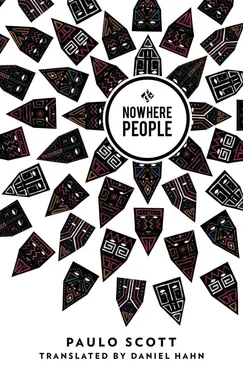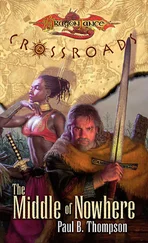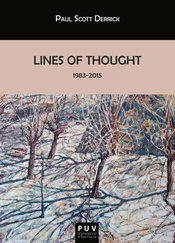With the story he drafted at the desks in the library, Donato wins the school’s playwriting competition. His prize is the money to stage his play, Crucial Two One , at the end-of-year party. He has little more than three months to choose his actors, rehearse, sort out a set. He never imagined he would do it, it was the first time he had entered. If Rener had been in Brazil he’d have got her to play the lead in the story, which takes place in an indeterminate future and an indeterminate place, where a government, an indeterminate government, has developed a way of resuscitating people which will guarantee them twenty-one more hours of life. The service is offered through a monopoly and proves to be one of the most effective ways of securing money for the public coffers: as the price is high, only the rich can afford the procedure, and the first condition imposed by the government on whoever buys it is that in the first seven hours of their extra life, they will fulfil their obligations to the Internal Revenue Service, to the public exchequer, undergoing a cross-examination under the effects of a drug which, for those seven hours, will make them unable to lie, and also that they will resolve any lawsuits under way with any private firms that have an agreement with the programme. Any buyer who, on his own account, is not in a position to shoulder the total cost of the service can be sponsored by other people, thereby being at the service of these sponsors for half of the fourteen remaining hours — this method tends to be bought by large firms to obtain information and secrets from their executives who would otherwise die without revealing them.
He gets a lift from Julián’s mother as far as Avenida Paulista. He said he’d get the metro but decides to walk; he likes strolling down Doutor Arnaldo when he is feeling calm. Luisa will be thrilled at the news; it was she who took him to see his first children’s play. He gestures to the guard to open the main gate of the complex. He takes the key out of his rucksack, opens the door. It’s cleaning day today, so the silence is strange (Friday is the day Luisa makes a point of staying home to organise her work). He opens the kitchen windows, the late afternoon light invades the room, the kind of light that makes the city better, showing up the crockery in the sink, the cereal box and the dirty ceramic bowl, just as he had left them that morning. He finds his phone, calls Luisa. ‘Hi, can you talk?’ he asks. ‘Yes,’ she replies, drily. ‘Dona Leila hasn’t been,’ he tells her. ‘I know … ’ She is shaken (but he still hasn’t noticed). ‘I’ve got good news. I won the playwriting competition … ’ he says. ‘Huh?’ She doesn’t seem to be hearing him properly. ‘The one at school … You and Henrique said … ’ — he is euphoric. ‘Great … ’ she interrupts him. ‘You’re at home, right?’ says Luisa. ‘Yes,’ no longer euphoric. ‘I’ll see you there, then.’ She hangs up without even saying bye. He knows he’ll have to clear up the kitchen so he doesn’t waste any time: he takes the rubbish from the bin, puts it outside. When he comes back in, he turns on the radio and the television (a recent habit); it’s not ten minutes before he hears the radio bulletin with an update on the turboprop plane carrying a number of businessmen that disappeared from air-control radar around eleven in the morning on a flight from Teresina to Brasília. It’s enough to make him squeeze the dishcloth in his fists without drying them properly and, trying to control his breathing, pick up his phone to talk to Luisa.
The body was one of the last to be found by the recovery team. After the many bureaucratic procedures had been seen to, it was sent to São Paulo. The coffin remained closed for the two hours of the wake. Luisa said she was not going to tell anyone, let alone pay for a death notice in the newspaper. ‘It’s not Henrique’s style.’ It was not her style. Donato did not ask to see what was left of his stepfather, nor did he go along when they buried him, he just sat outside the Gethsêmani snack bar imagining the mayhem if they’d had to bury him in Porto Alegre. An impressive number of friends showed up. He wondered what would make someone drop all their obligations and go to a wake at three in the afternoon, if he himself, the son, the adopted son of the only child of a couple, already deceased, is able to feel nothing but the enormous desire not to be there.
Luisa has been on medication for more than a week and it would probably be wise to refrain from any activities that require good reflexes, such as driving Henrique’s Honda Civic, in which the two of them are now sitting, travelling at more than a hundred and twenty kilometres per hour down Anhanguera. She holds the steering wheel and drives as if it were her own car. He watches her: her movements and the expression in her voice make her seem a stranger, a stranger he wouldn’t know how to deal with. She says she is not going to accept a settlement, she says they have to trust the Brazilian legal system. ‘If someone made a mistake, no doubt about it, they’re going to pay.’ Donato looks out at the landscape racing past the hard shoulder, tries to avoid the complicity of his presence with Luisa’s, just as he has always intuitively avoided his informal kinship to her all these years; he tries to avoid it before, as well as becoming a stranger, she becomes disdainful (because of their having reconciled in such an abrupt and Siamese way). ‘Your father’s Porto Alegre friends are going to want to kill me,’ she says. Donato doesn’t reply, but turns back to look at her (letting his silence seem an ill-at-ease way of keeping the peace). So she goes on: ‘They don’t all read the papers, they don’t all pay attention to disasters, they aren’t all working on the assumption that I might think they will be out of our lives for good now … ’ She rolls her window all the way down, sticks her head out. This lasts just a few seconds. When she returns to her proper sitting position, she sighs, a sigh of satisfaction. ‘I need to get some petrol.’ She drives on for a few kilometres, indicates right, leaves the road, enters a Texaco service station. ‘I’m not sure I’m going to be able to stay in this city … ’ She stops beside one of the fuel pumps. There’s an attendant gesturing to her to move the car up to the pump in front. ‘I’ll have to get out,’ Donato tells her. ‘Wait. I have a proposition to make … ’ she says, before putting the car into gear and starting up slowly. ‘You graduate from high school,’ and she brakes again, stopping the car just before the pump, ‘and in January we’ll … ’ Donato unlocks the car door. ‘What’s it to be, miss?’ the pump attendant asks her. ‘I need to go to the toilet,’ Donato says and opens the door. ‘Just a moment … ’ she gets confused. ‘Excuse me a moment, Luisa, sorry … ’ Donato says and gets out of the car. ‘I’ll wait here for you,’ she says. He walks over towards the convenience store and disappears from view. ‘Petrol — the Super … Fill it up,’ she tells the attendant. He fills the tank, checks the oil. The boy is taking his time. Luisa pays with a credit card and, when she is thinking about heading over to the shop, to check that he’s all right, she is surprised by the sight of the girl in the Texaco uniform. ‘Miss, sorry to bother you, but the young man who arrived with you asked me to tell you that he’s got a taxi home and he’ll meet you there.’ The girl is looking over towards the convenience store. ‘Could you tell me whether he … never mind.’ The pump attendant asks whether she wants her windscreen cleaned, but she barely hears him. She’s going to drive to Avenida Lorena, call up a girlfriend (but which?), get a coffee at Suplicy, then a drink, two, three and find some hotel to stay at, so Donato is left alone to understand just as quickly as possible what it means to look after yourself; but she is playing this scenario out in her head in order to lessen the pain not of having lost the man she has lived with for more than fifteen years and loved unconditionally, but of having been abandoned by the only person who could have been there with her, supporting her with a bit of decency through the distress of not being able to imagine how to wake up tomorrow morning and from where to wrench the strength to admit that from here on in there would be absence, a new absence, a solid block which refused to fit into reality.
Читать дальше












